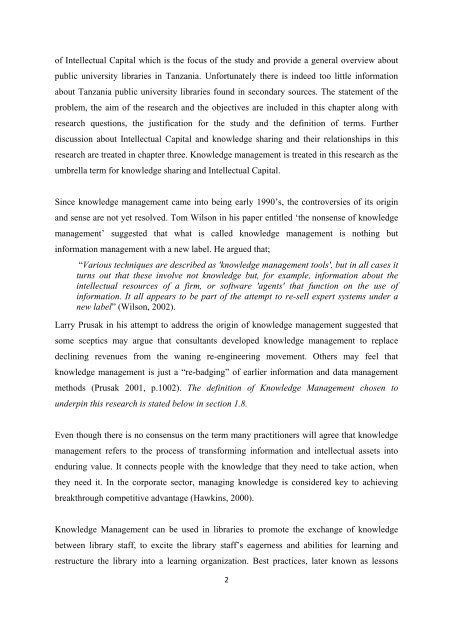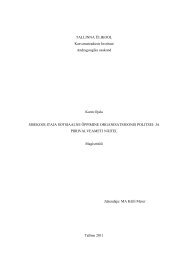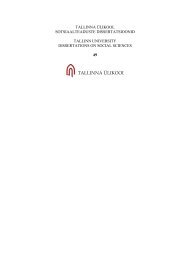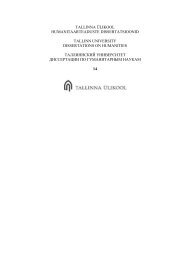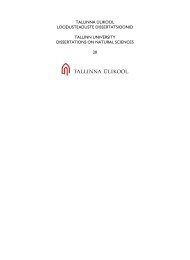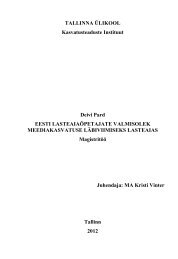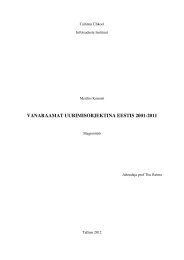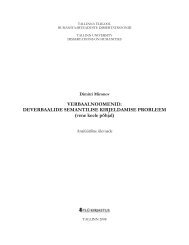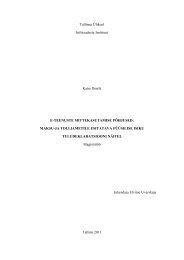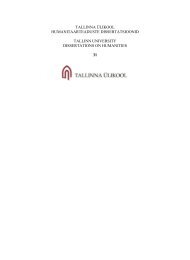Download (1157Kb) - E-Ait
Download (1157Kb) - E-Ait
Download (1157Kb) - E-Ait
Create successful ePaper yourself
Turn your PDF publications into a flip-book with our unique Google optimized e-Paper software.
of Intellectual Capital which is the focus of the study and provide a general overview about<br />
public university libraries in Tanzania. Unfortunately there is indeed too little information<br />
about Tanzania public university libraries found in secondary sources. The statement of the<br />
problem, the aim of the research and the objectives are included in this chapter along with<br />
research questions, the justification for the study and the definition of terms. Further<br />
discussion about Intellectual Capital and knowledge sharing and their relationships in this<br />
research are treated in chapter three. Knowledge management is treated in this research as the<br />
umbrella term for knowledge sharing and Intellectual Capital.<br />
Since knowledge management came into being early 1990‟s, the controversies of its origin<br />
and sense are not yet resolved. Tom Wilson in his paper entitled „the nonsense of knowledge<br />
management‟ suggested that what is called knowledge management is nothing but<br />
information management with a new label. He argued that;<br />
“Various techniques are described as 'knowledge management tools', but in all cases it<br />
turns out that these involve not knowledge but, for example, information about the<br />
intellectual resources of a firm, or software 'agents' that function on the use of<br />
information. It all appears to be part of the attempt to re-sell expert systems under a<br />
new label” (Wilson, 2002).<br />
Larry Prusak in his attempt to address the origin of knowledge management suggested that<br />
some sceptics may argue that consultants developed knowledge management to replace<br />
declining revenues from the waning re-engineering movement. Others may feel that<br />
knowledge management is just a “re-badging” of earlier information and data management<br />
methods (Prusak 2001, p.1002). The definition of Knowledge Management chosen to<br />
underpin this research is stated below in section 1.8.<br />
Even though there is no consensus on the term many practitioners will agree that knowledge<br />
management refers to the process of transforming information and intellectual assets into<br />
enduring value. It connects people with the knowledge that they need to take action, when<br />
they need it. In the corporate sector, managing knowledge is considered key to achieving<br />
breakthrough competitive advantage (Hawkins, 2000).<br />
Knowledge Management can be used in libraries to promote the exchange of knowledge<br />
between library staff, to excite the library staff‟s eagerness and abilities for learning and<br />
restructure the library into a learning organization. Best practices, later known as lessons<br />
2


